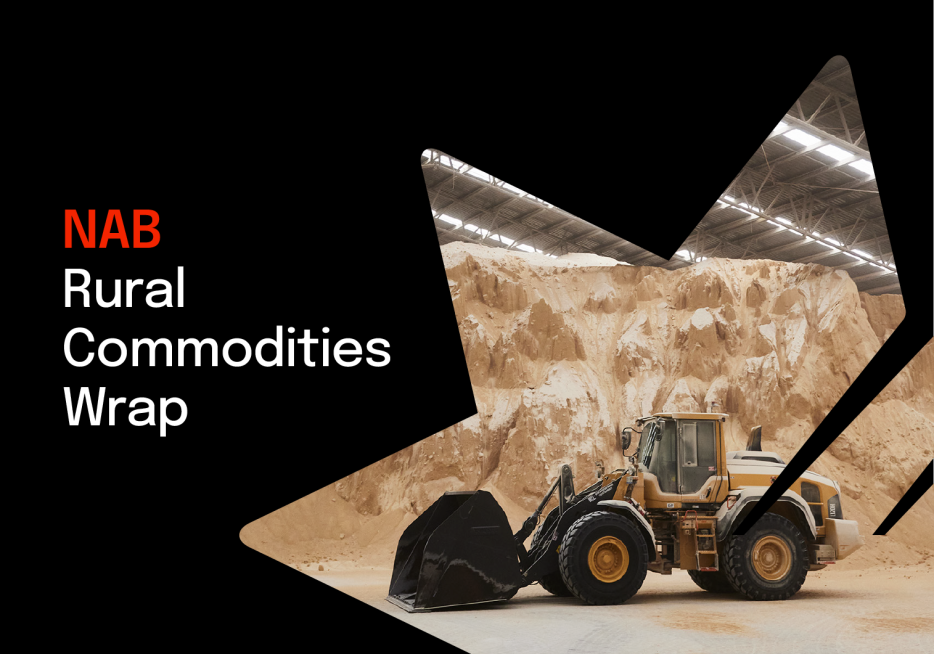The NAB Rural Commodities Index continued its upwards momentum and increased 1.4% month-on-month in May. The index is around levels seen in February 2023.

Report
It started out as a way of cutting the cost of fuel. Today, Ecofuels Australia’s biodiesel operation is just one aspect of a ‘closed-loop’ system that includes rearing livestock and generating power. General Manager Peter O’Donnell discusses his commitment to sustainable practices that make economic sense.

Peter O’Donnell was delighted when an old school friend approached him with the idea of setting up a biodiesel operation. His revegetation, mulch-producing and landscaping businesses are very fuel-intensive and he was eager to find a more cost-effective alternative to conventional diesel.
“I already owned farms in southern New South Wales and I decided to buy Madowla Park in north central Victoria when it came on to the market,” says O’Donnell.
The project soon expanded beyond fuel production.
“We joined forces with experienced cattle industry operators to form Ecofuels Australia, which has three divisions – biofuels, livestock and digesters. This has enabled us to develop a totally integrated approach to the management of waste and energy.”
At Madowla Park, O’Donnell and his partners now process their canola crop into biodiesel. This can be used as a substitute for regular diesel in unmodified engines and also mixes readily with diesel to form a range of blends.
“Our biodiesel currently accounts for between 10 and 15 percent of the fuel we use,” says O’Donnell. “We’re expecting to cut our overall fuel bill by as much as 10 percent.”
After the canola seeds have been crushed and the oil extracted, a high-protein meal remains.
“We started out selling that to the local dairy industry,” says O’Donnell. “Then we thought of a way we could use it ourselves.”
They began rearing dairy heifers destined for China, using the meal to supplement pasture grazing while the animals are in quarantine awaiting export.
“We’re in the process of acquiring more land to increase our capacity for producing good quality cattle,” says O’Donnell.
Ecofuels is now committed to maintaining a closed-loop system, which prevents by-products from escaping as waste.
“Everything is either used, sold or reprocessed to be sold,” says O’Donnell. “For example, with the help of the Victorian Government we installed a small-scale digester unit that can turn glycerol, soapy wash water and various other biofuel by-products into power. Our aim is to produce enough power to get off the grid.”
O’Donnell believes the closed-loop approach could benefit any farmer with enough land to set aside for an oilseed crop.
“Farmers could grow enough fuel for their own property, and perhaps the neighbouring properties,” he says.
He also sees Ecofuels as a commercial demonstration of how integrated systems can create environmentally-sustainable, long-term rural employment.
“We always envisaged the scale of what we were doing as appropriate for a rural or regional operation,” he says. “For example, we minimise the cost of transporting raw materials by keeping the operation to a scale that enables a small, localised cluster of properties to supply all that the project needs.”
But, above all, his decisions are based on the bottom line.
“Solutions to environmental problems aren’t environmental solutions, they’re economic solutions,” he says. “Our process is a cheaper way of doing things. We’re making more money, we have better margins and we’re minimising risk with a more stable fuel price. We’re not in the business of spending more money to feel good – we’re constantly looking for solutions that are environmentally sensible but cost us less at the same time.”
More from NAB:
© National Australia Bank Limited. ABN 12 004 044 937 AFSL and Australian Credit Licence 230686.